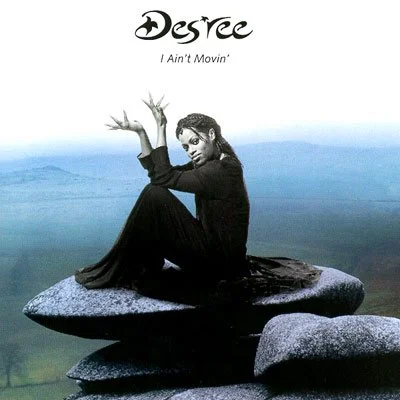Des’ree’s ‘I Ain’t Movin’’ Turns 30 | Album Anniversary
This article was originally published via Albumism here
Happy 30th Anniversary to Des’ree’s second studio album I Ain’t Movin’, originally released in the UK May 9, 1994 and in the US July 5, 1994.
Desirée Weekes, more commonly known by her stage name Des’ree, emerged in the 1990s as a voice that defied easy categorization. Her London upbringing, infused with the rich musical traditions of Guyana and Barbados from her parents, laid the groundwork for a sound that transcended genre. Calypso's infectious rhythms, jazz's sophisticated harmonies, and reggae's undeniable groove all found a home in her musical DNA.
This foundation, coupled with a voice that soared with both celestial grace and earthly power, ensured her sophomore album, I Ain't Movin', wasn't merely a continuation, but a revelation. It served as a testament to the enduring power of musical heritage, proving that quality transcends trends and creates a continuum of artistic excellence.
Released in 1994, I Ain't Movin' became a critical and commercial success. Propelled by the global smash and lead single "You Gotta Be," the album garnered Des'ree a slew of award nominations and solidified her position as a rising star in British pop/soul. Originally clocking in at eleven tracks, all co-written by Des'ree herself, subsequent reissues added a bonus track: "Feel So High" for the UK's 2000 edition and a percussion reprise of the title track for the US release.
While some might have expected a singular artistic vision on I Ain't Movin', Des'ree embraced collaboration. Co-piloting the production, one of Britain’s soul pioneers, Ashley Ingram (Imagination), and a cadre of specialists like the legendary Spike Stent, amongst others, were able to weave a tapestry of sound that reflected the album's core message: love's multifaceted nature thrives in connection and collaboration.
I Ain't Movin' doesn't shy away from its unabashed optimism, offering a collection of anthems designed solely to uplift the spirit. While undeniably catchy, the album takes on a different character when viewed through a contemporary lens. Though it still retains its core message of perseverance ("I Ain't Movin'"), social justice ("Herald the Day"), and communal love ("Living in the City"), revisiting this album with a modern gaze, reveals a more nuanced perspective beneath the surface positivity. This complexity (and maybe a slightly more cynical gaze) adds another layer to the music, inviting listeners, new or old, to re-evaluate its messages in the context of today's world.
This album stands as a profound affirmation of the timeless virtues of honesty, bravery, and unwavering resolve, encouraging the messages of strength and integrity. The title track serves as a stirring call to arms, urging individuals to stand firm in their beliefs and values despite the challenges they may face. This sentiment is further reinforced in "Herald the Day," which advocates for truth and justice to triumph in a world often fraught with turmoil and injustice. The track "Crazy Maze" remains strikingly relevant even after three decades, offering a poignant reflection on the complexities of navigating a chaotic world with grace and resilience. Des'ree's ability to infuse her music with such profound themes of empowerment and moral clarity is commendable and serves as a timeless reminder of the importance of staying true to oneself in the face of adversity.
Des'ree carved out a unique space on I Ain’t Movin’, not with cynicism or grit, but with a potent blend of idealism and intellectual nuance. "Living in the City" becomes a manifesto for a utopian urban existence, one built on empathy and shared resources—a refreshing counterpoint to the often bleak portrayals of city life. While "Trip on Love" celebrates the profound bond between parent and child, Des'ree acknowledges its limitations in capturing the full spectrum of love's potential. Whereas "Love Is Here" hints at a spiritual underpinning to love, offering solace but potentially restricting its expression to a specific religious context. These songs, like much of this album, have become a powerful exploration of love's various forms, both personal and transcendent.
I Ain’t Movin’ provided music that went far beyond mere beauty, resonating with a depth of vulnerability and understanding that wasn’t common in the ‘90s, especially for female artists. To say that this album truly captivated a moment in time would be a gross understatement. Des’ree’s soulful delivery not only showcased her ethereal vocality and adept songwriting skills, but it was also able to convey a sense of empathy and connection with all those that listened.
It is difficult to overlook the influence that Des'ree and this album have had on contemporary artists like fellow Brits Laura Mvula and Mahalia, both known for their equally soulful and emotive artistry. The legacy created by Des'ree and albums like this, serves as a source of inspiration for a new generation of singers, shaping the landscape of modern music and reminding us of the enduring power of authentic, heartfelt expression that lies within the art of creating music—music with a sense of purpose.
